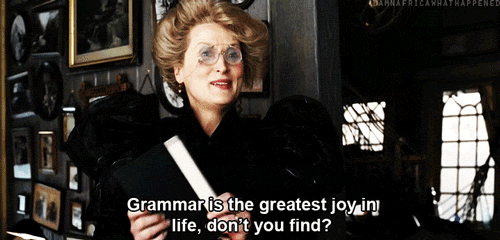 There is one controversial topic among the English language experts, and it is called the “Oxford comma”. Some style guides require that it is mandatory to use the comma type, and others make it optional. Often, there are serious debates around the subject which may even result in lifelong enmity and conflicts among people. While those are, fortunately, rare cases, it is still important to know what the Oxford comma is along with all the fuss around it.
There is one controversial topic among the English language experts, and it is called the “Oxford comma”. Some style guides require that it is mandatory to use the comma type, and others make it optional. Often, there are serious debates around the subject which may even result in lifelong enmity and conflicts among people. While those are, fortunately, rare cases, it is still important to know what the Oxford comma is along with all the fuss around it.
There is a series of popular images, which can be found all over the Internet, that explain the pertinence of an Oxford comma in a funny way. For example, at the first glance, it seems that nothing is wrong with the following sentence: “I love cooking, chocolate cake and my parents.” On the second one, it looks as if the author implied that his/her cooking passion concerns mainly chocolate cakes and parents. While this certainly does not make any sense, this sentence sounds funny if we look at it this way.
Here comes the Oxford comma, or the serial comma. It is a comma that precedes the conjunction “and” in the list of words or phrases. In general, the use of the Oxford comma is entirely optional and up to each individual English speaker. Most style guides do not demand it, especially the styles that reporters and journalists use (the Associated Press, The Economist, The New York Times, and The Guardian) and the Cambridge Guide to English Usage. However, other styles, like the ones used in academia (MLA, APA, Chicago, AMA) or the US Government Printing Office Style Guide, emphasize the importance of acknowledging it. What is also peculiar about the Oxford comma is that it’s solely the domain of the English language. Others don’t seem to be bothered by problems like this.
If you think that the Oxford comma is just an irritating superfluity, let us take a look at some instances where its use might change the meaning of the phrase. For example, it is normal for the Academy Award winners to make a thank-you speech when accepting their Oscar. Journalists who are deliberately ignoring the Oxford comma might unwillingly make the most heartwarming speech sound funny. Indeed, how does this sentence look: “The actor thanked his parents, God and Quentin Tarantino”? It does seem a bit funny, as if God and Mr Tarantino were the parents of the hypothetical actor.
Linguistics experts provide some other arguments in favor of the Oxford comma. They say, for example, that inserting a comma at the end of the list will better correspond with the way we pronounce the sentence. Indeed, we do make a pause before “and”. Also, the Oxford comma will help to differentiate between the lists of pairs and the lists of individual things (“cooking and eating, friends and family” and “friends, family and colleagues”). Of course, with its mandatory use, all the ambiguity of certain phrases would go away.
To sum it all up, the Oxford comma is generally optional for use, unless you are a student. Your professors will most likely be looking for serial commas and cutting points for the lack of such. Beyond school, it is completely up to you whether to use it or not. Just beware of all the obscure phrases you might accidently write when omitting this tricky punctuation mark.
